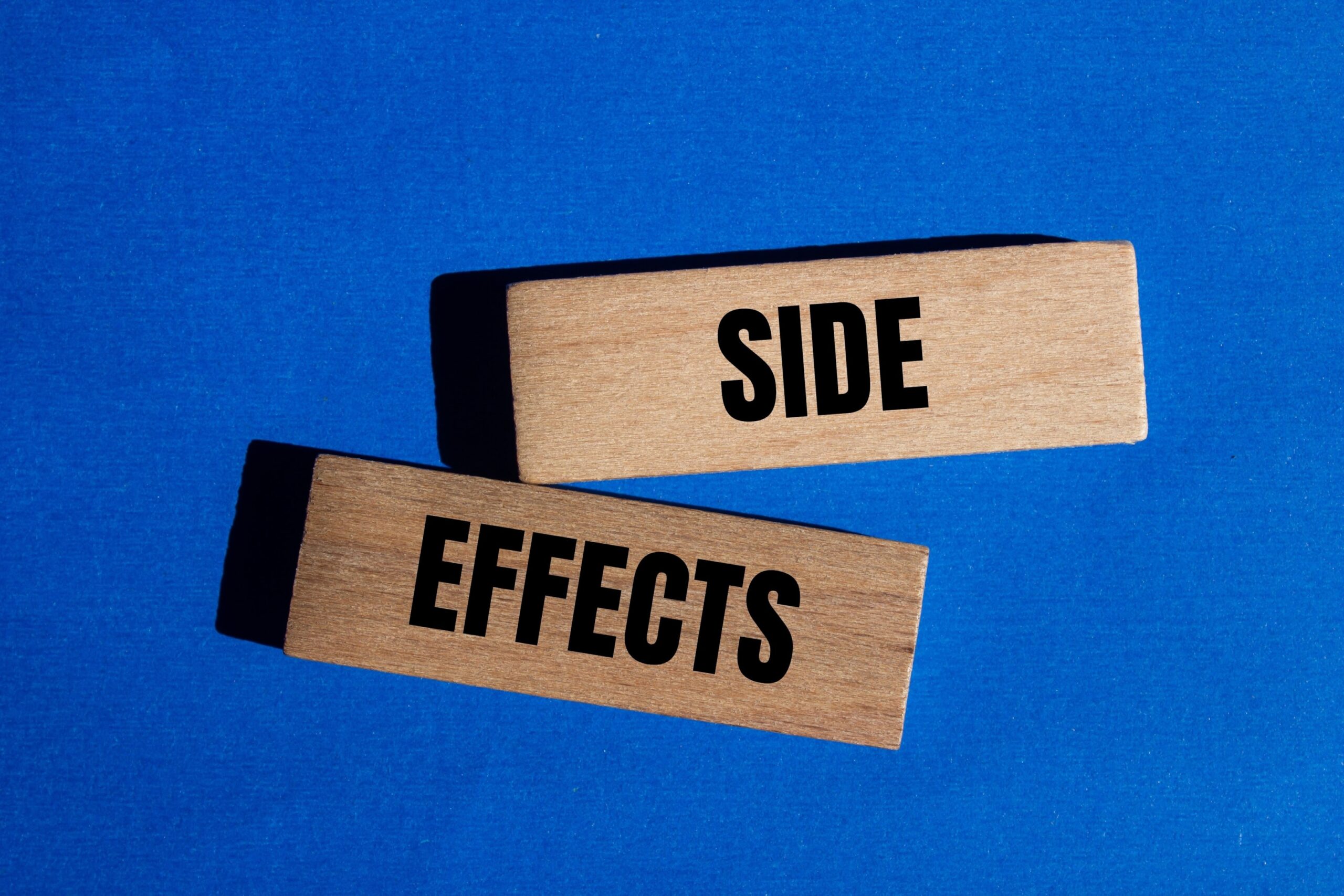If you’re torn between Zyrtec and Claritin, this article simplifies the decision with a focus on “Zyrtec vs. Claritin.” We break down the differences, from speed and duration of relief to side effects, so you don’t have to. You can pick the antihistamine that fits your lifestyle by comparing cetirizine’s fast relief to loratadine’s non-drowsy.
Bottom Line
Zyrtec (cetirizine) is faster and maybe stronger but more likely to make you drowsy than Claritin (loratadine), which is less sedating.
Zyrtec and Claritin offer 24-hour relief, are over-the-counter, and have generic versions for cost savings.
Choose between Zyrtec and Claritin based on your individual needs and lifestyle, including onset and duration of action, sedation, and interactions with alcohol or other meds.
Cetirizine (Zyrtec) vs Loratadine (Claritin): The Main Differences

In a world of options and sneezes, two stand out regarding allergy relief: Zyrtec and Claritin. These second-generation antihistamines are ready to tackle allergy symptoms with their strengths. Zyrtec is a medication with cetirizine and promises fast relief from discomfort. Claritin has loratadine as its active ingredient and is non-drowsy—a bonus for those who don’t want to be drowsy.
Think of Zyrtec as a sprinter that zooms in to address annoying symptoms quickly—its strength is quick intervention. Think of Claritin as a marathon runner whose strength is steady symptom control without sedation, which can slow you down during your daily activities. So which one is best for you? Consider your pace. Do you need fast symptom relief or sustaining alertness all day? The answer depends on matching the pace of symptom management to how you live your day.
Onset of Relief: How Fast Do They Work?
As soon as you feel the first signs of an allergy attack, fast relief for those symptoms is key. Zyrtec delivers by starting to work 20-60 minutes after taking it, giving quick relief to those who want to eliminate their allergy discomfort. If pet dander surprises you or if walking through blooming flowers triggers your allergies, Zyrtec is your go-to for those pesky symptoms.
On the other hand, Claritin takes longer—1-3 hours—to start working compared to its fast-acting counterpart but still relieves it after taking it. It’s for those who like to plan and ensure symptom relief is in motion before they get into situations that trigger their allergies. So, to treat symptoms when preparing for outdoor activities or reading for dust-filled indoor chores, choose Claritin and Zyrtec based on how fast you need symptom relief according to your schedule.
Duration of Allergy Control: How Long Do They Last?

A sneeze-free day with no itching eyes depends on how long your allergy medication lasts. It’s a good thing Zyrtec and Claritin both last up to 24 hours. So you can go about your daily activities or enjoy time outdoors without the constant reminder of allergies, as these pills work around the clock to ward off various symptoms.
Looking deeper into their effects reveals that Zyrtec, based on the drug cetirizine hydrochloride, has an edge in strength according to some clinical studies—it’s said to be more effective in reducing symptoms than Claritin and other seasonal allergy meds. For those experiencing severe allergic reactions and needing strong support in managing them, this might be a key consideration when choosing their ally against allergens.
Sedative Effects: Which One Will Make You Drowsy?
Being alert all day can be as important as getting rid of allergy symptoms. Zyrtec and Claritin reduce these unwanted reactions with less chance of causing drowsiness compared to their older antihistamine counterparts. There’s a big difference: while Zyrtec fights allergies, it also puts you to sleep more and can disrupt your daily activities.
Claritin, on the other hand, protects against sleepy side effects while fighting allergic reactions. This characteristic allows you to do tasks that require complete concentration— from driving to complex work assignments—without interruption from the sleep-inducing fog that some meds may cause. When choosing an antihistamine for symptom relief, consider how important being fully awake is for your daily tasks.
Zyrtec and Claritin Effectiveness: How to Treat Allergy Symptoms

In the battle against allergies, you look for strength in an antihistamine. Zyrtec and Claritin have proven themselves by giving allergy relief. They provide 24 hours of symptom relief in one dose—a big plus for convenience. Consider how these meds perform when faced with stubborn allergy symptoms.
With either Zyrtec or Claritin, you can fight many allergic symptoms, including sneezing fits, runny nose, and watery eyes, which are most aggressive during allergy season. Zyrtec may give faster symptom control, but it comes with drowsiness as a side effect—one must weigh this when considering overall effectiveness. On the other hand, Claritin stands firm on its promise of less drowsiness while still guarding against allergens.
The right allergy medicine for you is one that not only eliminates your specific symptoms—like sore throats—but also fits into your lifestyle without disrupting it.
Seasonal vs. Perennial Relief for Allergic Rhinitis
Seasonal allergies don’t follow a calendar. For some, they last all year round. Zyrtec and Claritin are formulated to address the ups and downs of seasonal allergy symptoms and perennial allergic rhinitis. With over 100 million Americans suffering from allergies every year, there’s a huge demand for meds that can address different needs.
Taking Zyrtec or Claritin before entering an environment with allergens can boost your defense against seasonal blooms and continuous exposure to household triggers like dust or pet dander. Choose between the two based on how each fits into your daily routine and specific needs for symptom relief.
Nasal Congestion
A runny nose is one of the many allergy symptoms that dominate the scene, reminding you with every breath. Zyrtec and Claritin remedy this symptom, working like conductors to clear the respiratory passages. By targeting the body’s allergic reactions, these meds ease the nasal blockage that causes trouble breathing and makes daily tasks more exhausting.
For those with nasal congestion plus runny nose and postnasal drip, there’s relief in combination meds like Zyrtec-D and Claritin-D. These pills attack multiple allergy symptoms simultaneously, so you can breathe easier and focus on your daily tasks.
Side Effects and Safety Profile

When choosing a medication, consider the side effects. Zyrtec and Claritin can:
Dry mouth
Headaches
Dizziness
Nausea
Fatigue
Sleepiness
Remember that while allergic reactions are mild and manageable, these meds can have other adverse effects on your body, like stomach pain.
Prioritize safety, especially for vulnerable groups like children, seniors, or those with underlying health conditions. Sometimes, side effects can be severe, requiring further evaluation and possible therapy change. Don’t ignore rare but severe reactions like acute rashes or angioedema, which need immediate medical attention.
Drug Interactions and Contraindications
Allergy management is already complicated enough without adding drug interactions to the mix. Zyrtec and Claritin interact safely with other meds but can increase sedation when taken with certain other drugs, too. It’s like hosting a party where you must monitor your guests to avoid chaos.
Be aware that taking antihistamines like Zyrtec or Claritin with Benadryl, alcohol or certain antidepressants can amplify drowsiness. Before adding any new med to your regimen, consult your doctor for a safe integration that minimizes side effects.
Use in Special Populations
Safety should always be the top priority for special populations using allergy meds. Older antihistamines, such as Zyrtec, can be taken by expectant mothers, as they have been proven safe. Lactating mothers can also take antihistamines like Zyrtec or Claritin after consulting a doctor.
Our little ones at home and outdoors may also need relief from allergies and can do so with proper dosing of these meds. But always exercise caution and get professional guidance. We want to relieve the most vulnerable from their symptoms without risking their health and well-being.
Cost and Availability: Best Value

Allergy symptoms don’t have to be expensive. Generic versions of Zyrtec and Claritin are very affordable. OTC allergy meds cost between $25 and $30, but prices vary from store to store, so it’s best to compare.
These OTC allergy meds are easy to get, so they’re convenient for those needing relief. Zyrtec and Claritin are available at local pharmacies or online stores so that you can get them anytime allergic reactions strike.
Over-the-Counter Availability
Healthcare providers trust Zyrtec and Claritin so much that they’re over-the-counter meds. They come in various forms—chewable tablets and syrups—to suit consumers’ needs and tastes. This convenience allows you to manage your allergy symptoms without a prescription.
This is especially useful during allergy season, when symptoms can strike anytime. Getting these meds from a pharmacy quickly means immediate relief for those with allergies, which is just a win for those who suffer from them.
Use NiHowdy’s Prescription Discount Card
Let’s talk about the financials. NiHowdy’s prescription discount card is changing how people pay for healthcare by allowing users to earn up to 3% back in Bitcoin on every prescription purchase. This adds value and can be a big win over time.
When you use NiHowdy’s card at your local pharmacy, you get instant savings and enter a world where medical spending can benefit your economic health. This intelligent strategy doesn’t just reduce expenses but also opens up investment opportunities that can offset future medical bills.
Your Lifestyle and Allergy Medications

Living with allergies means incorporating them into the fabric of your life. The key to choosing an allergy med is how well it fits into your daily routine. Those who spend much time driving or operating heavy machinery may not want Zyrtec’s drowsiness. In that case, Claritin is a better option for relieving symptoms without sleepiness.
The choice goes beyond just avoiding sleepiness. It’s about getting an allergy med that aligns with your lifestyle—whether you’re an on-the-go parent, a student juggling academics, or an outdoor enthusiast pursuing your passions. Ideally, your chosen allergy med should be a supporter—not a disruptor—of your daily activities.
Daily and Long-term Use
For those who have chronic allergies, comfort is not just a seasonal battle—it’s a year-round war. Fortunately, Zyrtec and Claritin have a long history of being safe for daily use to avoid allergy symptoms. When your daily life is filled with triggers that trigger allergic reactions, you can count on these meds to be your constant companions during the peak of allergy season.
Allergy management is not just about occasional treatment. It’s about pre-emptive management of potential flare-ups. That’s where Zyrtec and Claritin’s reliability comes in. Whether you’re dealing with constant irritation from chronic urticaria or everyday battles with allergens like dust mites, having these meds in your life provides a sustained defense that matches the persistence of your allergies.
Alcohol Considerations
As you settle in for some evening relaxation with your favorite drink, be aware of the interaction between Zyrtec and alcohol. Zyrtec’s sedative effects can be enhanced when taken with alcohol and may result in excessive drowsiness instead of a calm evening. This combo should work. Avoid it to stay alert and be able to participate in activities that require total concentration.
Look for an allergy med that lets you have a nightcap. Claritin might be the one. Its non-sedating effects make it a better companion for your evening drink routine, reducing the risk of drowsiness when taken with alcohol or other sedatives. Moderation is key, and always consult a healthcare provider before mixing any medication with alcohol.
Personalize Your Allergy Treatment
Allergy treatment is complex and requires a customized approach like your fingerprint—there’s no one-size-fits-all solution. That’s why personalizing your allergy management is critical. A conversation with a healthcare provider can reveal lesser-known treatments suited to your health profile and allergic responses. If you’re dealing with severe symptoms or want to improve how you manage them, a professional may be the guidance you need to find relief.
Allergy management goes beyond choosing a medication. It’s about understanding how allergens affect your body and daily life. Sometimes, that means exploring therapy options or lifestyle changes to consider meds like Zyrtec and Claritin. The goal is to create a plan as complex as the allergies themselves.
When to Switch Medications
Unfortunately, allergy meds like Zyrtec or Claritin are not forever effective. As time passes, you may find these reliable warriors losing their power to control your symptoms. This could mean your body has developed tolerance to these meds, or the dynamics of your allergies have changed and require a new approach to management. When this happens, it’s time to re-assess your med lineup based on current symptoms, side effects, and new emerging allergens.
Working with a healthcare provider can help you make changes by showing if you need to switch meds or if adding nasal sprays can help control allergy symptoms. Remember that managing health is an ongoing story — dynamic and ever-changing — that’s why allergy treatments must be flexible enough to adapt to each new turn and twist along the way.
Combining with Other Therapies
Sometimes, combining treatments is the way to go when treating allergies. Zyrtec and Claritin are powerful for allergy relief. Still, when paired with other therapies like nasal steroid sprays or immunotherapy, your allergy-fighting arsenal is even more substantial. Imagine creating a team of different treatments, each bringing its unique superpower to help you conquer allergies.
When trying these other options, work with healthcare professionals. They have the expertise to help you navigate all the treatment options and will ensure therapies like Zyrtec, Claritin, and others don’t conflict with each other. With their help, a customized plan can address your specific symptoms and fit your lifestyle and preferences.
Conclusion
Finding the perfect allergy relief solution can be overwhelming and confusing. But now that you know more about Zyrtec and Claritin—from how long they work to their safety profiles, cost, and how to fit them into your life—you’re equipped to make a decision. Enjoy personalized allergy management and clear skies and clear sinuses.
FAQs
How long does Zyrtec and Claritin take to work?
Zyrtec can start to work in 20 minutes to an hour. Claritin can take 1-3 hours to kick in.
So, Zyrtec may be faster at acting for allergy symptoms.
Can I take Zyrtec and Claritin daily for long-term allergy management?
Yes, Zyrtec and Claritin are safe for long-term use for chronic allergies.
Can I take Zyrtec or Claritin if I’m pregnant or breastfeeding?
Talk to a healthcare provider before taking Zyrtec or Claritin while pregnant or nursing. They can help ensure your safety and that of your baby.
Will taking Zyrtec or Claritin affect my ability to drive or operate machinery?
Yes, Zyrtec can cause drowsiness and impact your ability to drive or use machinery. Claritin is generally considered safer for this because it’s less likely to cause this side effect.
How can I get Zyrtec and Claritin cheaper?
Buy generic. Sign up for NiHowdy’s prescription card.